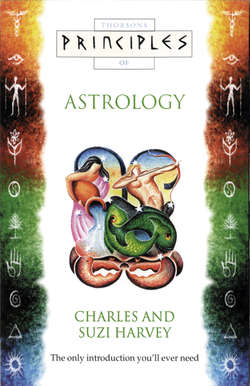Читать книгу Astrology: The only introduction you’ll ever need - Charles Harvey - Страница 32
THE PLANETARY GODS
ОглавлениеThe planetary gods are the main actors in the great mythological stories and in our own life dramas as well. They are the characters that keep the energy and the plot moving along. Each god or planet has distinct attributes, needs and personality. Every chart contains all of them, although the particular way that they appear in each chart is what reveals our uniqueness. The planets of our solar system, with the Sun at the centre, are Mercury, Venus, our Earth, Mars, Jupiter, Saturn, Uranus, Neptune and Pluto. Between Mars and Jupiter is the asteroid belt which includes hundreds of smaller bodies. In addition, there are various other bodies, such as Chiron between Saturn and Uranus, and the Centaurs which circle out beyond Pluto. Some of the planets, such as Earth, also have Moons.
Down the ages the planetary principles (which in Plato’s view were ‘the first born thoughts of God’) have collected many different identities. They are:
the gods of the different world mythologies;
the Forms or Ideas of Plato which in-form matter and consciousness;
the Archetypes of contemporary psychology, the primary templates that shape our psychological growth and relationship with the world;
the chrono-crators (time-markers) of all historical, philosophical, religious and political movements which inspire, shape and dissolve cultures, nations and empires;
the hopes and fears of business and economic cycles;
the movers and changers of the ‘flavours of the month’ and what is ‘in vogue’ in the world of art, fashion and the media.
Whether we call them gods or archetypes, forms or ideas, these principles are the fundamental formal causes which weave the tapestry of living Creation out of the passive potentiality of matter. They are the diverse instruments which sound out the cosmic symphony of life in all its harmonic and dissonant subtleties. And they are in us. And the more we come to know the gods in ourselves through understanding our astrological make-up, the more can we make sense of the hopes, the fears, the themes and the events of our life story.
Astrology has no unique claim to understanding these universal formative principles. The patterns of these same ideas are expressed and explored in all the mythologies and theogonies of the world, in fairy tales and dreams. Myth and astrology share the same early origin. Myths express the nature of these archetypal forces in story; astrology maps out their ordered cycles in time. Studying the mythologies of ancient cultures will enrich your understanding of the planetary gods.
Equally, these principles are the basis of all forms of divination by which the underlying processes and purposes of the Cosmos may be approached and glimpsed, such as in numerology, the I Ching, the kabbala and the tarot. Where astrology is unique, however, is in its identification of the way in which the movements of the bodies of the physical solar system mirror, or plot out as on a huge cosmic clock, the moment-to-moment processes of life. Armed with this fundamental insight, astrologers over the centuries have been able to develop a remarkable science and art for studying the creative potential of any moment of space-time, be it past, present or future.
